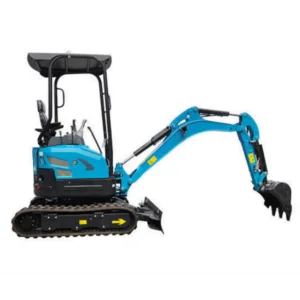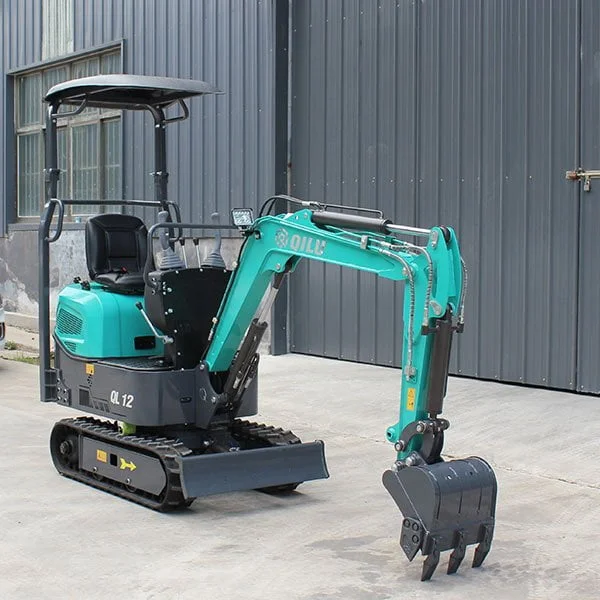Email: [email protected] Whatsapp: 8618266768780
How to Choose the Best 2 Ton Excavator for Your Project

Welcome to My Blog!
Before we dive into the content, I’d love for you to join me on my social media platforms where I share more insights, engage with the community, and post updates. Here’s how you can connect with me:
Facebook: https://www.facebook.com/profile.php?id=100072217509763
LinkedIn: https://www.linkedin.com/company/74949059/admin/dashboard/
YouTube:https://www.youtube.com/@tractormanufacturer-lc5qz
TikTok: https://www.tiktok.com/@tractormanufacturer
Now, let’s get started on our journey together. I hope you find the content here insightful, engaging, and valuable.
Introduction
When it comes to handling small to medium-sized construction projects, landscaping tasks, or utility work, a 2 ton excavator is an ideal piece of equipment. This versatile, compact machine can perform a wide range of tasks, from digging and trenching to grading and lifting. However, with so many models and options on the market, choosing the right 2 ton excavator for your project can be a challenge. This guide will explore the key factors you should consider to ensure you select the best 2 ton excavator for your needs, maximizing both efficiency and cost-effectiveness.
What is a 2 Ton Excavator?

A 2 ton excavator, also known as a mini or compact excavator, is a small but powerful machine used in construction and landscaping projects. These machines are typically lighter, more maneuverable, and easier to transport than larger excavators. Despite their size, 2 ton excavators offer impressive digging power and versatility, making them an excellent choice for tight spaces or small jobs where precision and control are paramount.
2 ton excavators come with a variety of attachments and can perform numerous tasks such as digging, lifting, grading, and material handling. They are commonly used in urban construction sites, landscaping projects, utility installations, and more. Their small footprint and lower cost make them highly efficient for projects that don’t require the massive capabilities of a full-sized excavator.
Key Factors to Consider When Choosing a 2 Ton Excavator
When selecting the right 2 ton excavator for your project, there are several key factors to take into account. Each factor will influence how well the excavator performs in your specific application and how much value you get from your investment.
Job Requirements and Application
The first step in selecting the best 2 ton excavator is to determine the specific requirements of your project. Consider the following:
- Type of Work: Are you primarily digging, grading, trenching, or lifting? The type of work you need to perform will influence the attachments and features you require.
- Ground Conditions: Will the excavator be working on soft soil, rocky terrain, or asphalt? Some excavators are better suited for certain ground conditions, so it’s essential to match the machine’s capabilities to the environment.
- Space Constraints: If you’re working in confined spaces such as urban areas, gardens, or narrow alleys, you need an excavator with a compact design and excellent maneuverability.
By understanding the exact nature of your project, you can select an excavator that is optimized for the job, improving efficiency and performance.
Machine Specifications
The performance of a 2 ton excavator is determined by a range of specifications, each of which should be carefully evaluated to ensure the machine meets your project needs.
- Operating Weight: A 2 ton excavator generally has an operating weight between 1.8 and 2.2 tons. This weight provides enough stability and digging power while remaining light enough for easy transport and maneuverability.
- Digging Depth: Digging depth is one of the most critical factors when selecting an excavator. Most 2 ton excavators offer a maximum digging depth between 6 and 10 feet. Consider the depth of trenches or foundations you need to dig when evaluating different models.
- Engine Power: The engine power of a 2 ton excavator typically ranges from 12 to 20 horsepower. Higher horsepower means more digging and lifting power, but it may also result in higher fuel consumption. Choose a model that offers a balance between power and fuel efficiency.
- Reach: The reach of the excavator arm is another important specification. A longer reach allows you to work more efficiently without repositioning the machine as often, especially when digging or loading materials.
Attachments and Versatility
One of the main advantages of a 2 ton excavator is its versatility. By using different attachments, the excavator can perform a wide range of tasks. Common attachments include:
- Buckets: Standard buckets for digging, trenching buckets for narrow ditches, and grading buckets for smoothing surfaces.
- Augers: Used for drilling holes in the ground, augers are perfect for fence installations, landscaping, and utility work.
- Hydraulic Hammers: Ideal for breaking through concrete, rocks, and asphalt, making these attachments useful for demolition projects.
- Thumb Attachments: Used for grabbing and holding materials, such as logs or debris, for easier lifting and loading.
Ensure that the excavator you choose can accommodate the attachments you need for your specific tasks. This will maximize the utility of your machine and make it more cost-effective.
Maneuverability and Transportation
For many projects, especially in urban or residential areas, the ability to maneuver in tight spaces is crucial. A 2 ton excavator is known for its compact size and excellent maneuverability, but some models offer features that enhance this even further:
- Zero Tail Swing: This feature allows the excavator’s house (upper body) to rotate entirely within the width of the tracks, reducing the risk of hitting obstacles and making it easier to work in confined areas.
- Compact Track Design: A narrower track design allows the machine to fit through tight spaces, such as garden gates or between buildings.
Additionally, consider how easy it is to transport the excavator between job sites. A 2 ton excavator is typically light enough to be transported on a standard trailer, which reduces logistical costs and makes it easier to move the machine as needed.
Table of Key 2 Ton Excavator Specifications

To help you compare different models of 2 ton excavators, here’s a table that outlines the key specifications you should evaluate:
| Feature | Typical Range for 2 Ton Excavators | Importance for Your Project |
|---|---|---|
| Operating Weight | 1.8 – 2.2 tons | Affects stability and ease of transport |
| Engine Power | 12 – 20 horsepower | Determines digging and lifting power |
| Digging Depth | 6 – 10 feet | Essential for trenching and foundation work |
| Reach | 10 – 14 feet | Reduces need for repositioning |
| Attachments | Buckets, augers, hammers, thumbs | Increases versatility for various tasks |
| Tail Swing | Conventional or zero tail swing options | Affects maneuverability in tight spaces |
Operating Costs and Fuel Efficiency
While the upfront cost of purchasing or renting a 2 ton excavator is an important consideration, it’s also crucial to evaluate the machine’s long-term operating costs. This includes fuel efficiency, maintenance requirements, and expected downtime.
- Fuel Efficiency: A more fuel-efficient excavator will save you money over the long term, especially if you plan to use it for extended periods. Look for models that offer eco-friendly engines with lower fuel consumption rates.
- Maintenance: Regular maintenance is necessary to keep your excavator running smoothly. Some models come with easy-access engine compartments and simplified maintenance protocols, reducing downtime and labor costs.
- Reliability: Choosing a reliable excavator from a reputable manufacturer will minimize the risk of breakdowns and ensure that your machine lasts longer, providing better value for your investment.
Conclusion
Selecting the best 2 ton excavator for your project involves evaluating various factors, from machine specifications to attachments and operating costs. By carefully considering your project’s specific requirements, including the type of work, space constraints, and ground conditions, you can choose a machine that maximizes efficiency and minimizes costs. Additionally, focusing on fuel efficiency, ease of maintenance, and versatility through attachments will ensure that your investment in a 2 ton excavator delivers long-term value.
FAQ
What is the advantage of a 2 ton excavator over larger models?
A 2 ton excavator is smaller, more maneuverable, and easier to transport than larger models, making it ideal for tight spaces and smaller projects. It also tends to be more fuel-efficient and cost-effective for light to medium-duty tasks.
Can a 2 ton excavator be used for digging foundations?
Yes, a 2 ton excavator is capable of digging foundations for small structures, such as sheds, garages, and residential homes. However, for deeper or larger foundations, a larger excavator may be required.
What are common attachments for a 2 ton excavator?
Common attachments include standard digging buckets, trenching buckets, hydraulic hammers, augers, and thumb attachments. These attachments allow the excavator to perform tasks such as digging, drilling, and material handling.
Is a 2 ton excavator suitable for urban projects?
Yes, the compact size and maneuverability of a 2 ton excavator make it highly suitable for urban projects where space is limited. Features like zero tail swing and compact tracks further enhance its ability to work in tight environments.
How often should a 2 ton excavator be serviced?
Regular maintenance should be performed according to the manufacturer’s recommendations, which typically involve periodic oil changes, filter replacements, and inspections. Routine servicing helps prevent breakdowns and prolongs the life of the machine.
About Us
Shandong Qilu Industrial Co., Ltd. is a professional manufacturer and exporter integrating the development and production of excavators, loaders and tractors. We provide the best service, absolutely.
Recent Posts
Video demo
-1.png)
Contact Us Today!
Any question, quote or inquiry? Click the button to send message.
Qilu Industrial will always here to help.
